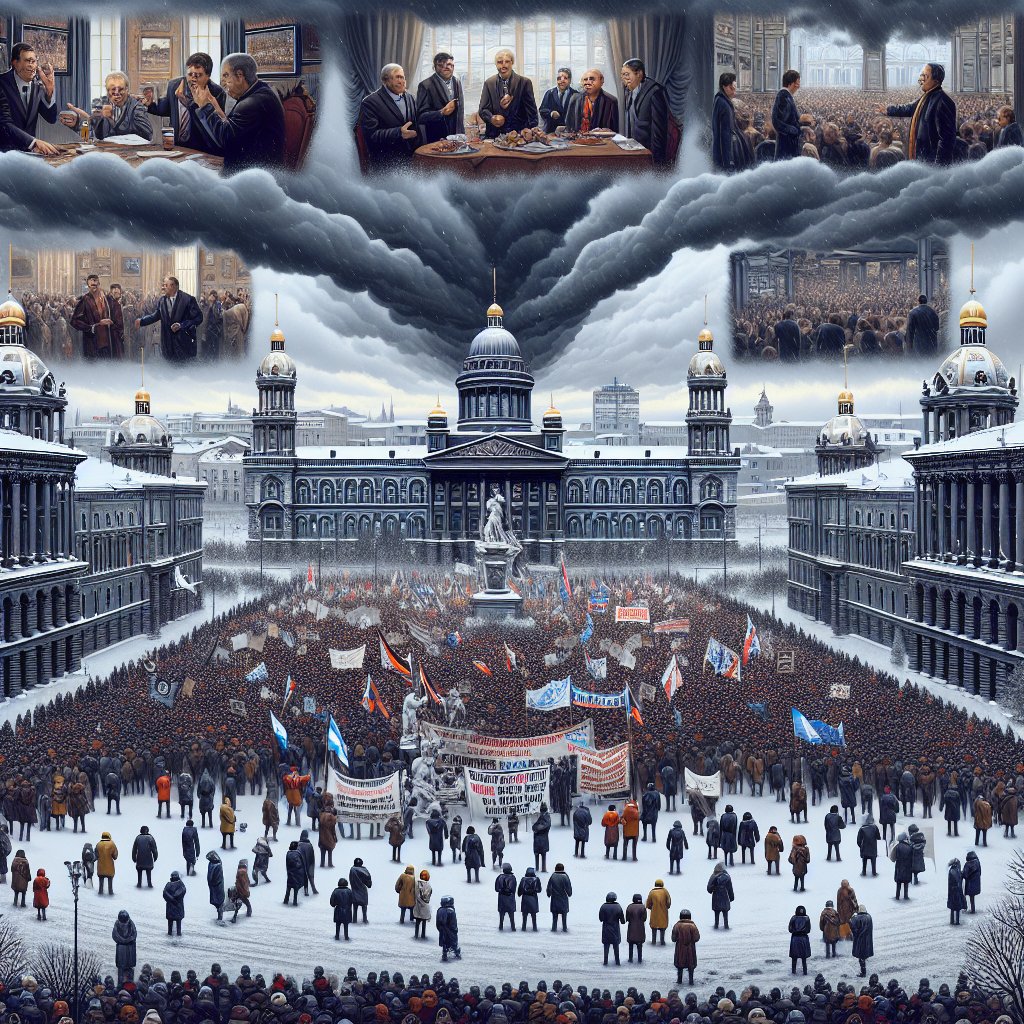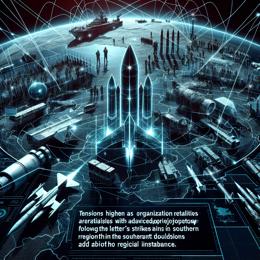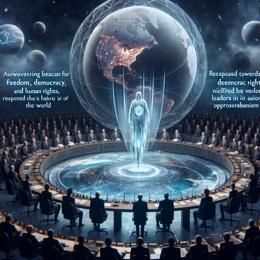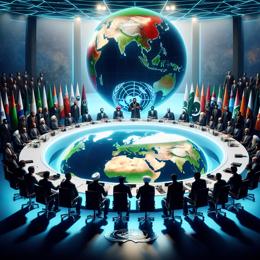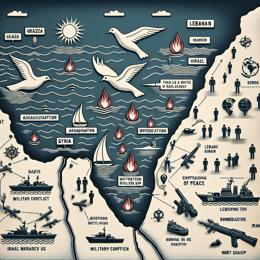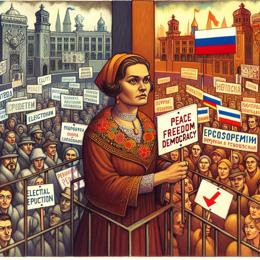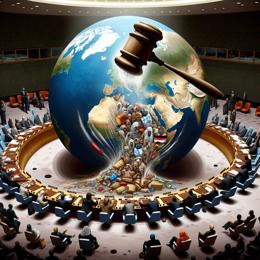Content created by AI
Tensions Rise as Russia Accuses the West of Inciting Instability in Serbia Amidst Election Protests
Belgrade, Serbia's political landscape is simmering with tensions following parliamentary and local elections that took place on December 17. The events took a dramatic turn when demonstrators attempted to overrun the Belgrade city hall on Sunday, frustrated by what they perceive as electoral malpractice. Protesters are challenging the purported landslide victory of President Aleksandar Vucic's ruling party, alleging that the electoral process was riddled with irregularities. The turmoil's ripples have reached Moscow, with Russia stepping in with accusatory statements regarding Western involvement in the unrest.
Russia's Ministry of Foreign Affairs leveled grave charges against Western nations, asserting that their actions were aimed at fomenting discord in Serbia, a nation known for its amicable ties with Moscow. Spokeswoman Maria Zakharova, talking to RIA Novosti, explicitly called out what she characterized as clear attempts by the "collective West" to shake the foundations of stability in the country.
The Kremlin itself had previously conveyed its approval of the electoral outcomes, with Dmitry Peskov, a spokesperson, expressing aspirations for the election results to cement a stronger bond of camaraderie between Serbia and Russia.
This unfolding controversy finds its context in a broader geopolitical landscape. Serbia, while seen as a Russian ally, has balanced its stance on international conflicts. Despite not enforcing sanctions against Russia for its military actions in Ukraine, Belgrade has demonstrated its disapproval of Moscow's aggression through condemnation at the United Nations. The position Serbia has taken has sparked debate within the international scene and amongst its populace.
Furthermore, Serbia relies heavily on Russian natural resources, with gas being a notable vulnerability. This dependency has colored the responses to public dissent within the country. The opposition parties in Serbia have raised their voices against the conduct of the recent parliamentary elections, claiming instances of electoral subversion.
Given the complexities of Serbia's political situation, it's clear that the post-election period will be closely monitored by both regional and global actors. The intersection of national sovereignty, energy politics, and geopolitical alliances will all play pivotal roles in how the current challenges facing Serbia will unfold.
